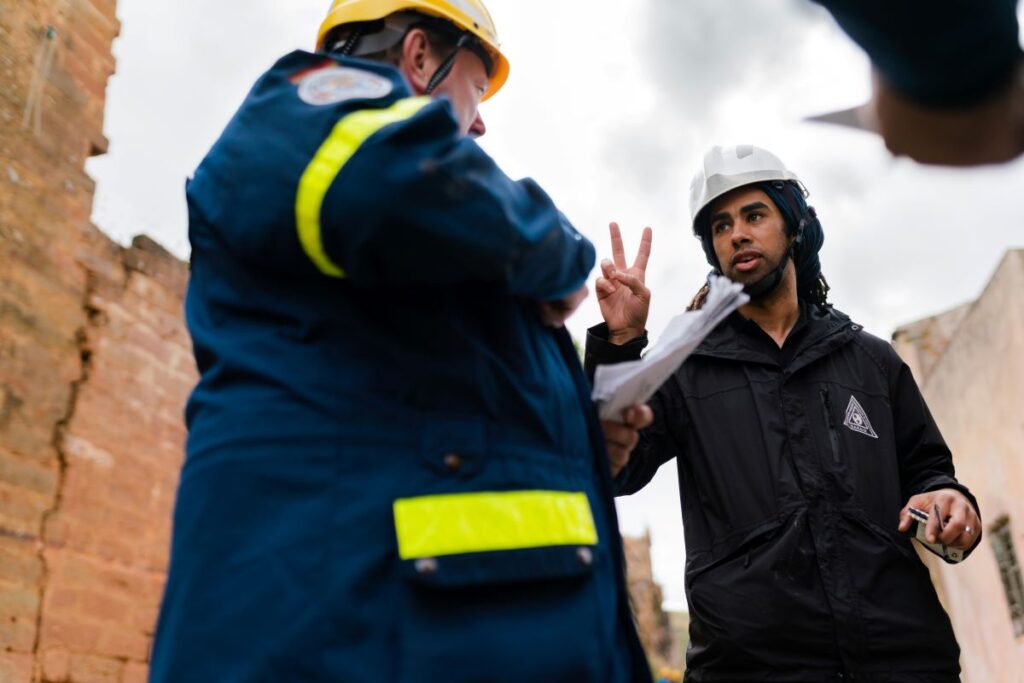In the realm of construction and civil engineering, the role of engineering surveyors is often overlooked. However, these professionals are integral to the successful design and execution of any site project. Their expertise not only ensures that projects are built to specifications but also plays a vital role in the overall planning and design process. This article delves into the various ways in which engineering surveyors contribute to site design, highlighting their importance in the construction industry.
The Role of Engineering Surveyors
Engineering surveyors are responsible for measuring and mapping out the land where construction will take place. Their work involves a combination of technical skills, knowledge of engineering principles, and an understanding of legal regulations. This multifaceted role is crucial for the following reasons:
1. Accurate Measurements and Mapping
At the heart of an engineering surveyor’s job is the need for precision. Accurate measurements are essential for determining the layout of a site, including the placement of buildings, roads, and utilities. Engineering surveyors use advanced tools and technologies, such as GPS and total stations, to gather data that informs the design process. This accuracy helps prevent costly mistakes that could arise from miscalculations.
Moreover, the mapping process involves not just the physical dimensions of the land but also the identification of existing features, such as trees, water bodies, and infrastructure. This information is invaluable for architects and engineers, allowing them to design projects that harmonise with the natural environment. Additionally, engineering surveyors often collaborate with environmental specialists to ensure that their findings align with ecological considerations, thereby promoting sustainable development practices that respect local ecosystems.
2. Site Analysis and Feasibility Studies
Before any construction begins, a thorough site analysis is conducted by engineering surveyors. This analysis assesses the suitability of the land for the intended project and identifies any potential challenges. Factors such as soil stability, drainage, and environmental impact are evaluated to ensure that the site can support the proposed design.
Feasibility studies conducted by surveyors provide stakeholders with critical insights into the viability of a project. By understanding the limitations and opportunities of a site, clients can make informed decisions about whether to proceed, modify, or abandon a project. This proactive approach mitigates risks and enhances the chances of success. Furthermore, engineering surveyors play a pivotal role in liaising with local authorities and regulatory bodies to ensure compliance with zoning laws and building codes, which can significantly influence the project’s timeline and budget. Their expertise in navigating these regulatory landscapes is essential for facilitating smooth project approvals and fostering positive relationships with community stakeholders.
Collaboration with Other Professionals
Engineering surveyors do not work in isolation; they are part of a larger team that includes architects, engineers, and construction managers. Their collaborative efforts are essential for creating a cohesive design that meets all regulatory requirements and client expectations.
1. Bridging the Gap Between Design and Construction
The transition from design to construction can be fraught with challenges. Engineering surveyors act as a bridge, ensuring that the design is faithfully executed on the ground. They provide critical data that informs the construction process, helping to maintain alignment with the original plans.
Additionally, surveyors are often on-site during the construction phase to monitor progress and verify that work is being carried out according to specifications. This ongoing involvement helps identify any discrepancies early on, allowing for timely adjustments that can save both time and money. Their role extends beyond mere oversight; they also facilitate communication between various teams, ensuring that any issues are swiftly addressed and that all parties remain informed about the project’s status. This proactive approach not only enhances efficiency but also fosters a collaborative atmosphere where innovative solutions can flourish.
2. Regulatory Compliance and Legal Considerations
Compliance with local regulations and legal requirements is a fundamental aspect of site design. Engineering surveyors are well-versed in these regulations and ensure that all aspects of a project adhere to the necessary standards. This includes obtaining the required permits and conducting surveys that meet legal specifications.
By ensuring compliance, engineering surveyors help protect clients from potential legal issues that could arise from non-compliance. Their expertise in navigating the regulatory landscape is invaluable, particularly in complex projects that may involve multiple stakeholders and jurisdictions. Furthermore, they often liaise with local authorities and regulatory bodies, providing the necessary documentation and reports to facilitate the approval process. This relationship not only smooths the path for project advancement but also enhances the credibility of the team, as stakeholders can be assured that every aspect of the project is being handled with the utmost professionalism and attention to detail. The surveyor’s role, therefore, is not just about compliance; it is about building trust and ensuring that the project can progress without unnecessary delays or complications.

Technological Advancements in Surveying
The field of surveying has evolved significantly with the advent of new technologies. Engineering surveyors now utilise advanced tools that enhance their efficiency and accuracy, making them even more integral to site design.
1. The Impact of 3D Modelling and BIM
Building Information Modelling (BIM) has transformed the way projects are designed and executed. Engineering surveyors play a crucial role in creating and maintaining accurate 3D models that serve as the foundation for the entire project. These models allow for better visualisation of the site, helping stakeholders understand the implications of design decisions.
Through BIM, surveyors can also identify potential issues before construction begins, reducing the likelihood of costly changes later in the process. This proactive approach not only streamlines the design phase but also enhances collaboration among all parties involved. Furthermore, the integration of real-time data into BIM systems enables surveyors to update models instantly as new information becomes available, ensuring that all stakeholders are working with the most current data. This dynamic capability fosters a more agile response to changes and challenges that may arise during the project lifecycle.
2. Drones and Aerial Surveying
The use of drones in surveying has revolutionised the industry, allowing for rapid data collection over large areas. Engineering surveyors can now obtain high-resolution aerial images and topographic data with unprecedented speed and accuracy. This technology is particularly useful for large-scale projects where traditional surveying methods may be time-consuming or impractical.
Drones also provide a unique perspective that can aid in site analysis and planning. By capturing data from above, surveyors can identify features and challenges that may not be visible from the ground, leading to more informed design decisions. Additionally, the ability to conduct aerial surveys in hard-to-reach or hazardous areas significantly enhances safety, as surveyors can gather essential information without putting themselves at risk. The data collected can be processed using sophisticated software to create detailed maps and models, further enriching the planning process and allowing for a more comprehensive understanding of the terrain and its potential constraints.
The Economic Benefits of Engineering Surveyors
Investing in skilled engineering surveyors can yield significant economic benefits for construction projects. Their expertise not only enhances the quality of the design but also contributes to cost savings throughout the project lifecycle.
1. Reducing Project Delays and Costs
One of the most significant advantages of involving engineering surveyors early in the design process is the reduction of project delays. By providing accurate data and insights from the outset, surveyors help ensure that the project stays on track and within budget. This proactive approach minimises the risk of unforeseen complications that could lead to costly delays.
Furthermore, their ongoing involvement during construction allows for real-time adjustments and problem-solving, further mitigating the potential for budget overruns. Clients can rest assured that their investment is being managed effectively, maximising returns. The integration of advanced technologies, such as 3D modelling and GIS (Geographic Information Systems), allows engineering surveyors to create precise representations of the project site, enabling better planning and execution. This technological edge not only streamlines processes but also enhances communication among stakeholders, ensuring that everyone is aligned and informed throughout the project. You may like to visit https://modon-development.com/how-a-survey-engineer-can-optimise-your-building-plans/ to get How a survey engineer can optimise your building plans.
2. Enhancing Project Value
The value of a project is not solely determined by its initial cost but also by its long-term performance. Engineering surveyors contribute to this value by ensuring that designs are sustainable, efficient, and compliant with regulations. A well-designed project is more likely to attract tenants, buyers, or users, ultimately enhancing its market value.
Moreover, the insights provided by surveyors can lead to innovative design solutions that improve functionality and aesthetics, further increasing the overall value of the project. Clients who prioritise the role of engineering surveyors are likely to see a greater return on their investment. Additionally, the emphasis on sustainability in modern construction practices means that engineering surveyors play a crucial role in assessing environmental impacts and recommending materials and methods that reduce the carbon footprint. This not only aligns with regulatory requirements but also appeals to a growing demographic of environmentally conscious consumers, thereby enhancing the project’s appeal and marketability in an increasingly competitive landscape.

Conclusion
Engineering surveyors play a critical role in the site design process, offering expertise that is essential for the success of construction projects. Their ability to provide accurate measurements, conduct thorough site analyses, and collaborate effectively with other professionals ensures that designs are not only feasible but also compliant with regulations.
With advancements in technology, the role of engineering surveyors is becoming increasingly sophisticated, allowing them to deliver even greater value to clients. By investing in skilled surveyors, stakeholders can reduce costs, minimise delays, and enhance the overall quality of their projects.
In an industry where precision and compliance are paramount, the contributions of engineering surveyors cannot be overstated. Their expertise is a vital component of successful site design, making them indispensable to the construction process.
